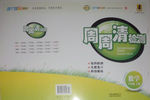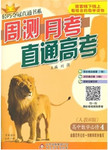When I first heard about geocaching(地理寻宝),I was skeptical. But the more I thought about it, the more it seemed like an interesting idea.I at least wanted to try it once.
Having familiarized myself with how the game works,I set out in search of my first cache. My trip took me through a series of lively hutong(胡同),past a number of small temples, and right into the courtyard of a quiet youth hotel.I spent several minutes looking around, but couldn't find anything. Just before l was about to give up,I spotted a colorful object in the crack of a wall. Could it be the hidden cache?
At that moment a group of backpackers amved. According to the game's rules, people who are not in the game must not be allowed to find out about secret caches. So I pretended to make a phone call while waiting for them to leave. When the coast was clear,I grabbed the object. It was the cache! I opened it and pulled out a crumpled(皱的)sheet of paper with several names and celebratory messages written on it.I added my own and replaced the cache in its hiding place, ready for the next geocacher to find.
It may seem like a simple game, but the idea that there are caches hidden all around us is exciting. Once you're hooked, it's easy to set yourself the goal of finding every single cache in a neighborhood or even an entire city. The real treasure, however, is not the cache itself, but the places it takes you to.
Hunting for further caches has since introduced me to places which I didn't even know existed. Some are peaceful parks, while others are forgotten historical sites.A few caches have even been in places I passed regularly without giving them any thought. Now,Ifeel a much closer connection.
1.What was the author's initial attitude to geocaching?
A. He thought it interesting.
B. He wanted to try it at once.
C. He showed little interest in it.
D. He found it unsuitable for him.
2.Where did the author find the cache?
A. In a hutong. B.In a temple.
C.In a well. D.In a hotel.
3.When a group of backpackers were approaching, the author____.
A. pretended to be cleaning the yard
B.made a call to other geocachers
C. didn't allow them to come in
D.tried to keep the cache secret
4.In what way does the author benefit from geocaching?
A. He's more familiar with the city.
B.He has found much treasure.
C. He has made more friends.
D.He has mastered hunting.
 浙江新课程三维目标测评课时特训系列答案
浙江新课程三维目标测评课时特训系列答案 周周清检测系列答案
周周清检测系列答案 轻巧夺冠周测月考直通高考系列答案
轻巧夺冠周测月考直通高考系列答案 浙江新课程三维目标测评课时特训系列答案
浙江新课程三维目标测评课时特训系列答案 周周清检测系列答案
周周清检测系列答案 轻巧夺冠周测月考直通高考系列答案
轻巧夺冠周测月考直通高考系列答案